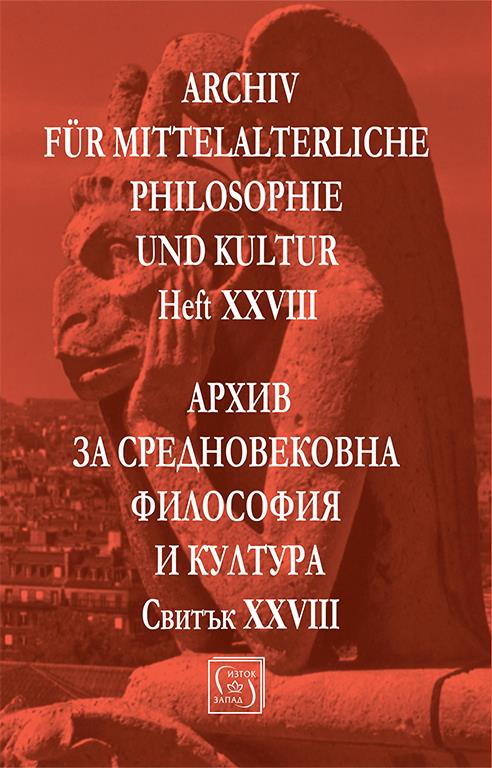Бележки върху Distinctio XXXIX от Ordinatio на Уилям Окам: Utrum Deus possit scire plura quam scit?
Notes on Distinctio XXXIX of William Ockham ̓s Ordinatio: Utrum Deus possit scire plura quam scit?
Author(s): Oleg GeorgievSubject(s): Christian Theology and Religion, Philosophy, Epistemology, Logic, Theology and Religion, Philosophy of Middle Ages, Systematic Theology
Published by: Издателство »Изток-Запад«
Keywords: theory of truth; medieval epistemology; logic; proposition; truth
Summary/Abstract: The present article is dedicated to Question XXXIX of William Ockham’s Ordinatio: whether God can know more (or fewer) truths than he does. However, Occam’s solution to the question of the specificity of knowledge, including God’s knowledge regarding the validity of true and false propositions about things, is not so much prompted by the attempt to prove the truth or falsity of the question. It seems that it was more important for him to answer whether it was possible to substantiate a theory of «objective» or «eternal» truths by means of propositions formed by the human intellect. The important question here is about the status of all that is in the mind: the difficulty of definition comes from the ambiguity of whether it is subjective (i.e. real) in the intellect, is only objective in the intellect and is subjective in the thing, or is objective only in the intellect and is not subjective anywhere else. In this situation, for him, an understanding of the status of true propositions that have a universal character and how they are formed is essential.
Journal: Архив за средновековна философия и култура
- Issue Year: 2022
- Issue No: 28
- Page Range: 95-124
- Page Count: 30
- Language: Bulgarian
- Content File-PDF

